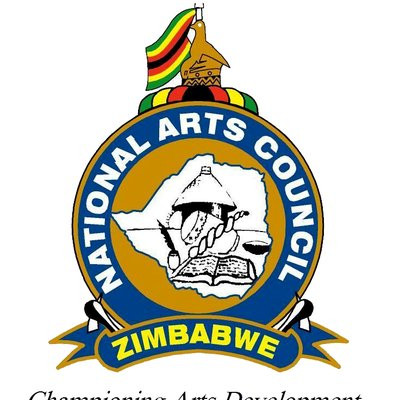
TOP music producer and artiste Macdonald “MacDee” Chidavaenzi is one of the country’s diverse and most sought-after figures in the music industry. NewsDay Life & Style reporter Winstone Antonio (ND) caught up with MacDee (MC), who has produced albums and singles for both seasoned and upcoming artistes at his Eternity Productions studios in Avondale, Harare and spoke about music producing and other related issues. Below are excepts from the interview.
Sneak Peek: Winstone Antonio

ND: How did you get started in the music and entertainment industry?
MC: My first meaningful opportunity was granted to me when I was working at MOVIP Studios when singer Innocent Utsiwegota gave me a job at Country Boy Records in 2004. I started working with the likes of Dino Mudondo, Noel Zembe and Major E. All I wanted was to be a singer and have a song playing on radio, but as fate would have it, I discovered that my passion was more behind the scenes, making other people’s dreams come true.
ND: What kind of training is required for one to be a music producer?
MC: Being a producer is more of an inner ability than training. Most people often confuse producing with engineering. At times, all you need is the ability to visualise how the end product will be and then know what sounds and vibes will work as well as what texture of voice and key will be appropriate for the song.
Basically, you are the captain of the ship with or without holding the machinery. However, knowledge of basic music theory, sound engineering and digital audio workstations is an added advantage.
- Chamisa under fire over US$120K donation
- Mavhunga puts DeMbare into Chibuku quarterfinals
- Pension funds bet on Cabora Bassa oilfields
- Councils defy govt fire tender directive
Keep Reading
ND: How do you combine the two — singing and producing?
MC: It is pretty simple for me because being an artiste is my way of practising any ideas and skills before applying them on a client. However, I have a problem whenever I have to choose between my work and my artiste’s work. I prioritise producing for my artistes first.
ND: As a producer and singer, can you produce your own music?
MC: Yes, a producer can produce their own music. We have a vast and rich history locally of producers who made it while producing their own music: Fortune Muparutsa, Take Five, Audius Mtawarira, Simba Tagz and, of course, myself. However, I also believe in the integration of talent, hence I will soon be working with other producers to change my sound. ND: Take us through the process when an aspiring musician walks into the studio for the first time?
MC: Well, any role starts with vetting the song for quality control, especially on composition, content and relevance to the target audience. From there, I pitch my intended vision to the artiste and once they buy in, I initiate all technical processes from creating the instrumental until we lay the vocals. After that, we listen to the premix for days before deciding what needs to be removed or added. Once you pass that stage, we can proceed to mix or send the song from mixing and mastering.
ND: How much would it cost to produce a single track?
MC: It varies and mostly, it’s based on the vision of the artiste. Charges can never be the same. In short, I am not divulging a standard rate.
ND: What would be the major reasons to go into a professional studio over a home-recording set-up?
MC: A home studio is more of a platform to prepare your concepts for recording and the professional studio for the final work. It’s always good to know that you can trust your work with someone who has invested a lot into the technical side, as that shows you how much they value quality and the right standards for your art.
ND: How long does it take you to complete a polished recording?
MC: I guess it depends on circumstances. If one is composing a song in a studio, it takes longer and will depend on the rate at which they build their concept. If all is in place, five hours is basic enough to lay everything down, leaving the mixing and mastering, which is dependent on the processes of the respective engineers.
ND: What else do you do to spot untamed talent?
MC: Once in a while, we call upon talented upcoming artistes to come through for auditions and we select the best. Right now, I have my song called Kanoenda recently released and is doing well on radio and television. I am calling out on interested artistes to submit videos of them singing my song from first verse to chorus. I will post the videos on my social media and the one with greatest responses stands a chance to be signed by my label. Their first single will be a studio cover of Kanoenda my song. It’s another creative way of reaching out to young talent and help them in the process.
ND: Producers have often been blamed for the failure of a project…
MC: Yes, producers can mess up an artiste’s project, but I discovered that the reason why our local artistes don’t last long nowadays is because we have left all the work to the producer. In the past, we would have poor quality productions, but the songs would make so much impact that, 20 years later, we are still feeling the impact of the artiste’s efforts. Producers simply provide the platform and direction for an artiste who has demonstrated that they are ready to conquer the world.
ND: How do you rate local productions compared to those in other parts of the world?
MC: We are getting there. We have mastered the standards, but now we need to create our own identity and desist from relying on borrowed formulas.
ND: When can you say you had a breakthrough in the industry?
MC: 2006 was the year that defined my breakthrough into the industry after working with virtually everyone in the top of the industry, from Xtra Large, Alexio Kawara, Tererai Mugwadi, ExQ, Stunner, Sebastian Magacha, Bethany Pasinawako, Innocent Utsiwegota, Honey Vibes and Sniper Storm, among others. I scooped three awards with my work that year.
ND: Which artiste would be a dream come true to work with for you?
MC: Jamaican reggae star Christopher Martin.
ND: Which other creatives have inspired you?
MC: Locally, the late Fortune Muparutsa set a standard of excellence and value that will always be hard to surpass and I am inspired by the work he left us. Regionally, I am inspired by Nigerian Maestro producer, songwriter and artiste Tekno.
Internationally, I would go for American singer Neyo’s work ethic and formula. Any day to me it’s timeless. My inspirations are all producers, singers and songwriters.
ND: Besides music what else do you do for a living?
MC: I am a media person specialising in marketing for various organisations on a consultation basis. I also do radio adverts for companies. I am also studying towards my Bachelor of Arts in Media Studies with Zimbabwe Open University.
ND: Where do you see yourself in three years to come?
MC: I am looking to groom more producers currently, and I am going into visuals as well. I want a company that does not rely on my hands or ability to keep it rolling. Because some people (Tapiwa Gunde and Innocent Utsiwegota) gave me a chance in life, why should I not do the same?
ND: What do you like to do for fun outside of working on music?
MC: Movies, attending live shows and travelling with Rutendo, the love of my life.
Your partying shot…
Music is a great industry. It just needs brains to understand that it’s important to be consistent despite the ups and downs that one may face.
Above all, strive to become a brand and maintain it. I also would like to thank the Zimbabwe family for the support that they have continually given us over the last 14 years and the support they continue to give us.











